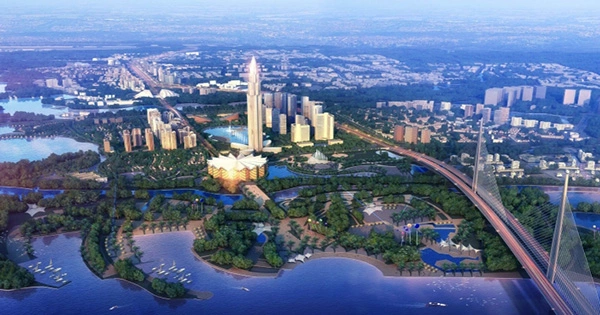The International Journal of Essential Infrastructures research provides advice on securing water essential infrastructures and reinforces the importance of maintaining environmental monitoring systems as cities transform into smart cities. Anh Tuan Hoang and Xuan Ky Nguyen of the Vietnam National University in Hanoi conducted a study on the city of Quang Ninh and proposed solutions to assist it construct resilient and secure systems.
As cities expand and systems become increasingly networked and dependent on information technology, there is an urgent need to improve not only the necessary sensors and actuators for the smart city but also to ensure they can cope with demand and withstand cyber attacks and other harmful activity. The current study looks at the key infrastructure of water systems in Vietnam, a country where smart cities are a priority. The team emphasizes the importance of safeguarding environmental monitoring devices against various security risks. The team highlighted what risks a smart city would face and how essential infrastructure could be made impermeable by focusing on Quang Ninh.

Of course, water infrastructure is vital in the urban environment, since it supports residences, medical facilities, workplaces, and natural ecosystems. The incorporation of environmental monitoring technologies into this infrastructure enables real-time control and operation, potentially improving efficiency and resource management. It is, however, a target for hostile third parties and so-called bad actors who may interfere with or otherwise disrupt this type of networked technology. While a cyberattack on e-commerce would be inconvenient, an attack on water essential infrastructure might mean the difference between life and death for thousands, if not millions, of people in a smart city.
Plans for digital transformation to develop the smart city of the future are already in the works in Quang Ninh. The team examined the technological risk that such a city faces in terms of averting negative incidents. As a result, the researchers discovered a substantial link between technology security and environmental protection and management performance.
The work emphasizes the human variables that can compromise technology systems and emphasizes the importance of rigorously scrutinizing such factors in order to improve security and prevent cyber assaults that rely on social engineering as much as feasible.
Policymakers, urban planners, and stakeholders in Vietnam and worldwide can use the findings of this study to build strategies for fortifying vital infrastructure and protecting against non-traditional security threats.
















